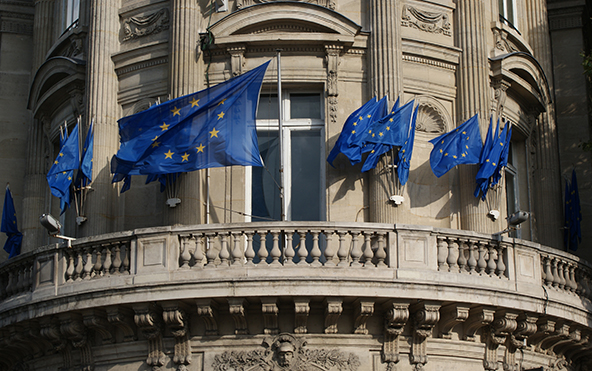Is a No-Benefit Credit Card with an Annual Fee Better than the One You Have Now?

Well, that is precisely what European Union officials would have you believe in a newly-released proposal for “New rules on Payment Services for the benefit of consumers and retailers”. The biggest change under consideration is the slashing of the interchange fees — the fees collected by card issuing banks on transactions involving their cards — to a maximum of 0.3 percent of the transaction amount. The rationale behind the proposal will sound familiar to readers who followed the discussion that preceded the reduction of the interchange fees on debit card transactions in the U.S.: the interchange fees charged to merchants are ultimately paid by consumers and once they are reduced, the merchants would pass the savings on to their customers. Many of us warned at the time that not only was such a transfer not going to take place, but consumers would actually end up being worse off, because banks would increase fees elsewhere to make up for the interchange shortfall. Sure enough, the free checking account, to take one example, has now all but disappeared in the U.S.
But the eurocrats are going further than their American counterparts — they are slashing both debit and credit card interchange fees, which means that European consumers will suffer even more than we did. Even as the European merchants will pocket the interchange savings, the card issuers will be forced to either severely cut back on their credit card rewards programs or discontinue them altogether. Furthermore, the no-annual-fee credit cards may well become a thing of the past and, of course, overall bank fees will increase. A great bargain indeed!
The Proposal
According to The Financial Times, about 727 million payment cards were issued in the EU in 2011 and the total value of card transactions exceeded ?é¼1.9 trillion ($2.5 trillion). With a 48.9 percent market share, MasterCard is the biggest brand in Europe, followed by Visa with 41.6 percent. European retailers pay about ?é¼13 billion ($17.2 billion) a year in transaction fees, and 70 percent of this total is accounted for by the interchange fees (the other 30 percent are collected by the “acquiring banks”, which enable merchants to take cards for payment). The impact of the proposed changes, The FT tells us, is likely to be felt most in markets such as Germany where the average credit card rates are 1.8 percent and in Poland the average debit card rates are 1.6 percent. And the cut would indeed be sharp.
Under the proposal, debit interchange fees would be capped at 0.2 percent of the transaction amount and credit interchange fees — at 0.3 percent. There would be an initial transition period of 22 months, during which the caps would only apply to cross-border transactions — when a consumer uses her card in another country, or when a retailer uses a bank in another country. Thereafter, the caps would apply to domestic transactions as well.
It is important to note that the proposed changes would apply only to the so-called “four-party card schemes” in which the issuer and acquirer are different entities. Visa and MasterCard, which as we saw account for more than 90 percent of the European market, both fall into this category. American Express and Diners Club (a subsidiary of Discover Financial since 2008), on the other hand, are both issuers and acquirers of transactions involving their cards (which makes them “three-party schemes”) and as such are exempted from the proposed cap. Mind that the proposed rules do not exempt the smaller guys from the interchange cap out of a desire to spur competition. No, sadly for the eurocrats, under three-party schemes there are no interchange fees (because, again, there is no separation between issuers and acquirers), so they had nothing to cap there.
A Huge Loss for Consumers
Predictably, The New York Times is hailing the proposal as a huge win for both merchants and consumers and the language used by the reporter is exactly what one would have expected. Here is a taste of it:
European Union officials on Wednesday proposed ways of lowering the fees that consumers do not see, but ultimately pay, for using credit card services like Visa and MasterCard. The proposal is meant to give the retail sector a shot in the arm.
But the proposal is expected to face heavy opposition from the card companies and from other financial services companies. The measures are aimed at so-called interchange fees — behind-the-scenes fees incurred whenever consumers tap in their PIN codes or sign a credit card receipt.…
The officials said that the measures were necessary to stop the gouging of consumers by the operators of payment systems that are vital for e-commerce and a thriving retail sector, and to make it easier for Europeans to make purchases across national borders. Officials also said the measures could encourage new companies to enter the bank card market.
As I said, everything one would’ve expected of the NYT, but let’s set all the devious, behind-the-scene aspect of the thing aside. Note that the retail sector is supposed to be given a shot in the arm. But here is a question for you: if the savings are to be passed on to consumers, as the supporters of the proposal claim will happen, how exactly are retailers to benefit from the change?
And then there is the gouging matter. Let us set evidence and logic aside for a moment and assume that following the adoption of this proposal retail prices will fall by 1 percent – 1.5 percent (the amount by which interchange fees will fall). We know what also will take place: banks will discontinue rewards programs, because at 0.3 percent interchange rates they will no longer be able to afford them and will raise fees elsewhere (checking account fees have been their favorite option in the U.S.) to make up for the lost revenues. So the upshot will be that consumers will no longer be “gouged” by the invisible 1.5-percent interchange fee, but in return they will no longer be able to get back 2 percent – 5 percent of the transaction amount in various rewards when they use credit cards for payment and will also be paying annual credit card fees and higher overall bank fees. As I said, that is a great bargain indeed!
The Takeaway
“The European Commission, the executive agency that also serves as the Union’s consumer watchdog, has long suspected the major card companies and banks of overcharging, hurting retailers and consumers”, the NYT informs us. Naturally then, as the BBC puts it, the “proposals are part of a series of measures aimed at tightening up the payments market across the EU”. Well, a couple of more such “measures” and the EC may have no payment market left to “tighten up”.
Image credit: Wikimedia Commons.


